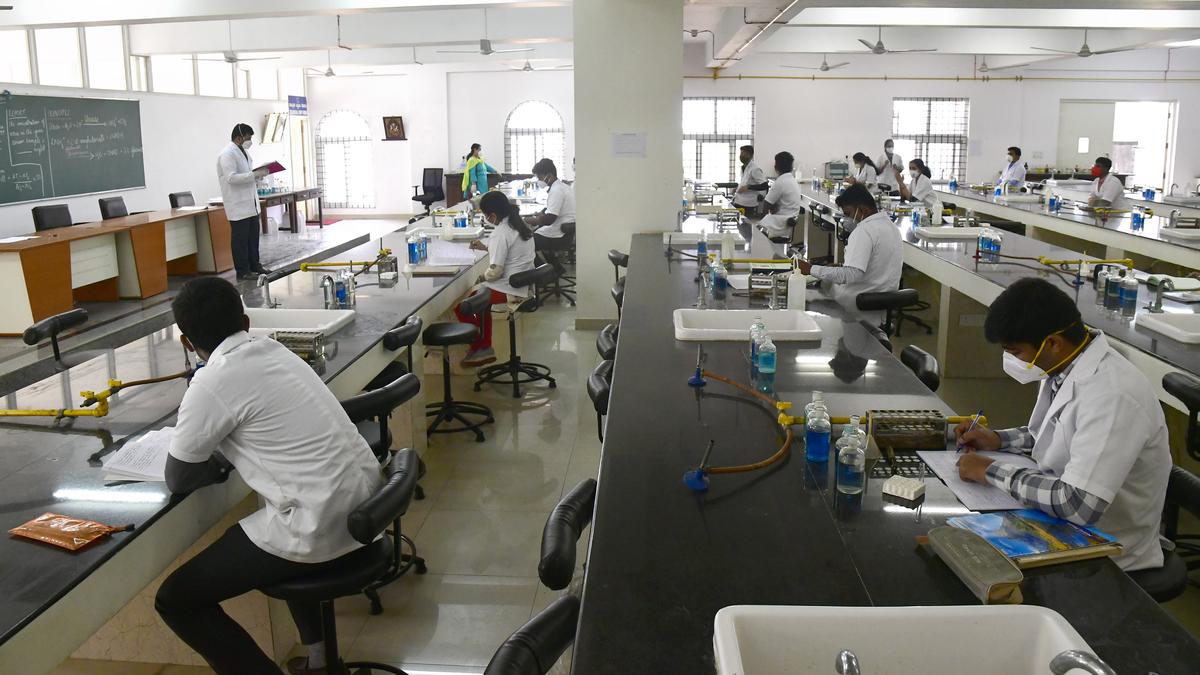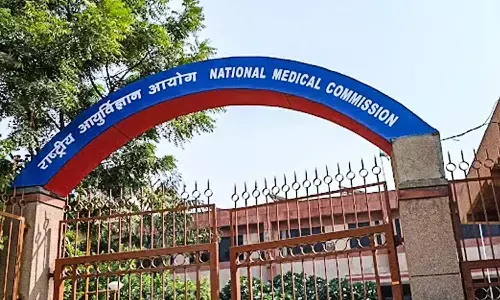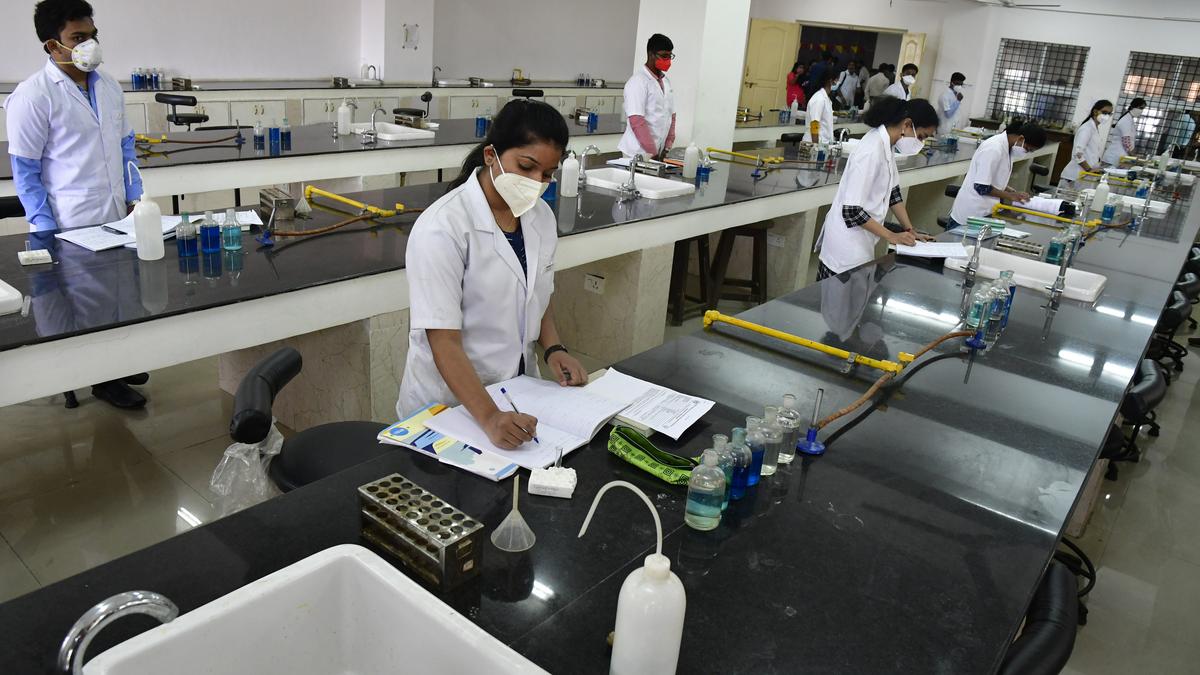In a significant development for medical education in Karnataka, the National Medical Commission (NMC) has approved the addition of 450 new medical seats across several colleges in the state. This decision is being hailed as a major step toward strengthening healthcare infrastructure and expanding opportunities for aspiring doctors. The increase in seats comes at a time when demand for medical education is at an all-time high, with thousands of students competing for limited spots.
Officials stated that the move will not only benefit students but also address the long-standing shortage of doctors in rural and urban areas of Karnataka. By ensuring that more students can access medical education, the NMC hopes to improve the quality and availability of healthcare services across the state. This development reflects growing efforts to bridge the gap between the healthcare needs of society and the availability of trained professionals. The new seats are expected to be distributed across both government and private colleges, with guidelines to maintain quality standards in teaching and infrastructure.
The approval of additional seats is expected to create new opportunities for students who often face immense stress due to limited medical college admissions. For many aspiring doctors, Karnataka has been a preferred destination because of its reputation for strong academic institutions and medical training programs. However, limited seat availability often forced students to look for opportunities outside the state or even abroad. With the addition of 450 seats, the pressure on students and families is expected to reduce, enabling more students to pursue their dreams within the state itself.
Experts also note that the expansion of medical seats is vital for building a robust healthcare system that can respond to emergencies such as pandemics, natural disasters, and chronic health challenges. By ensuring that more students are trained each year, Karnataka will be able to steadily increase the number of qualified doctors serving its population. This aligns with the state’s long-term vision of improving healthcare access in underserved regions.
The move is also seen as a critical intervention in addressing doctor-patient ratios, which remain a concern in many parts of Karnataka. Rural and semi-urban areas, in particular, suffer from a severe shortage of medical professionals, leaving communities vulnerable to preventable illnesses and inadequate treatment. With the introduction of more medical seats, the hope is that a larger pool of graduates will eventually serve in these underserved areas, either through government service requirements or personal choice.
The state government has welcomed the NMC’s decision, noting that it would complement ongoing efforts to upgrade healthcare infrastructure, modernize hospitals, and recruit qualified personnel. While the decision is being celebrated, experts caution that simply increasing seats is not enough; there must also be a parallel improvement in facilities, faculty strength, and training quality. This will ensure that students receive the best possible education and that the expansion contributes meaningfully to the healthcare ecosystem.
Expanding Opportunities for Aspiring Doctors
For thousands of students across Karnataka, the approval of 450 additional medical seats offers a sense of relief and hope. Medical aspirants often invest years of preparation and financial resources in pursuing admission, only to face disappointment due to the limited number of seats. This expansion provides a fresh opportunity for deserving candidates to secure placements and reduce dependency on costly admissions abroad.
Parents and students have welcomed the move, expressing optimism that the increase will ease financial and emotional pressures associated with medical education. Moreover, this decision is likely to encourage more young people from rural and middle-class backgrounds to pursue medical careers, as additional government seats could make education more affordable. Educational experts emphasize that expanding access to medical education is not just a benefit for students but a direct investment in the health and well-being of future generations.

Medical colleges in Karnataka are also preparing to adapt to the seat expansion by upgrading infrastructure and faculty capacity. Authorities have been instructed to ensure compliance with NMC guidelines, which require colleges to meet strict standards in terms of classrooms, laboratories, teaching staff, and clinical exposure. The increase in seats is expected to push colleges to expand their facilities and strengthen their academic delivery. Private colleges may also use the opportunity to enhance their offerings, making Karnataka an even stronger hub for medical education in India.
Experts believe that such changes will not only benefit students but also raise the overall quality of healthcare delivery in the state. With more students being trained, hospitals associated with medical colleges will also see an increase in manpower, thereby improving patient care. The move represents a comprehensive step toward creating an ecosystem where education and healthcare can complement each other effectively.
Long-Term Impacts on Healthcare Delivery
The addition of 450 medical seats is expected to bring far-reaching benefits for Karnataka’s healthcare system in the long run. A steady stream of new doctors graduating each year will help bridge gaps in healthcare delivery, particularly in rural and underserved regions. This could lead to improved maternal and child health outcomes, better disease management, and stronger primary healthcare systems.
Policymakers argue that an increase in trained professionals is essential for building resilience against future health crises, ensuring that Karnataka is prepared for both local and global challenges. The move is also expected to encourage greater participation of youth in public health services, contributing to nation-building. While challenges such as retaining talent in rural areas remain, the approval of additional seats is being viewed as a decisive step toward equitable healthcare access. The development symbolizes a commitment not only to education but also to the health and welfare of Karnataka’s citizens.
The approval of 450 new medical seats in Karnataka is being celebrated widely, yet it has also sparked discussions on how best to implement the expansion. Students, parents, and educational experts are optimistic but remain cautious about whether infrastructure and teaching quality will match the rise in admissions. Some colleges have already expressed concerns over the need for additional funding, faculty recruitment, and infrastructure development. Without adequate resources, the fear is that the quality of education could be compromised. Policymakers are now under pressure to ensure that the expansion is matched with adequate investment.
The state government has assured the public that the necessary steps will be taken to maintain standards. This includes directing colleges to upgrade their facilities, appoint qualified teaching staff, and expand hospital capacity to provide sufficient clinical training. Medical experts argue that exposure to patients is a critical component of medical education, and therefore, hospitals must be equipped to handle a greater number of students. The government has hinted at possible budget allocations for medical education in the upcoming financial plan, ensuring that the expansion leads to meaningful results.

Parents of medical aspirants have welcomed the decision, noting that the intense competition for limited seats often pushes families into financial strain. Many students travel abroad, spending significant amounts of money, only to return and face licensing hurdles. With the expansion of seats within Karnataka, families believe that more students will get opportunities locally, saving both money and time. This is particularly encouraging for middle-class households, which have long struggled with the high costs of private admissions.
Students themselves have voiced optimism, saying that the increase in seats will bring more fairness to the selection process. For years, aspirants with good scores missed out on admission due to limited seats. With 450 new opportunities, students feel more confident that hard work and merit will be rewarded. However, some have also expressed concern that competition may remain tough, as demand for medical education continues to outpace supply. Still, the move is viewed as a positive step in reducing stress and uncertainty.
Healthcare experts believe that this expansion will directly benefit patient care in Karnataka. With more doctors trained every year, hospitals will be able to address the shortage of medical professionals that has long plagued rural and semi-urban areas. A steady supply of trained graduates will strengthen government health programs, disease prevention initiatives, and emergency response systems. Over time, this could lead to improved health outcomes and greater confidence among citizens in the state’s healthcare system. The expansion is thus being seen as an investment in both education and public welfare.
Some senior doctors have highlighted the importance of balancing education with service obligations. They suggest that students benefiting from government-subsidized seats should commit to serving in rural or underserved areas for a set period. Such policies, they argue, will ensure that the state’s most vulnerable populations also gain from the expansion of medical education. The government is said to be exploring this idea, though details remain to be finalized. Ensuring fairness while motivating graduates to serve in rural regions will be a key challenge.
The private medical sector has also responded positively, noting that Karnataka’s strong reputation in medical education will only grow stronger with this development. However, private institutions are pushing for clarity on fee structures and seat distribution to avoid confusion among students. While government seats are expected to remain affordable, private seats could still pose challenges for economically weaker families. Policymakers are being urged to ensure transparent processes that keep education accessible while allowing private colleges to sustain operations.

Critics of the move argue that simply increasing the number of medical seats is not enough to address healthcare challenges. They emphasize the need for parallel reforms in curriculum, teaching methods, and the integration of modern technologies in medical training. Without innovation in education, the fear is that graduates may not be fully prepared to meet emerging health challenges. Therefore, alongside expansion, experts are calling for deeper reforms in the way medicine is taught and practiced in Karnataka.
The decision has also sparked interest among students from other states who view Karnataka as an attractive destination for medical studies. With its combination of academic excellence and new opportunities, the state could see an influx of applicants from across India. This could, in turn, boost the local economy through increased student spending, but it may also intensify competition for seats. Policymakers will have to strike a balance between offering opportunities to local students and maintaining Karnataka’s position as a hub for national and international medical education.
Overall, the approval of 450 additional seats is being seen as a turning point for Karnataka’s education and healthcare systems. While challenges remain, the general sentiment is one of optimism and hope. By expanding opportunities for aspiring doctors and strengthening the state’s healthcare workforce, Karnataka is taking a decisive step toward a healthier future. The task ahead lies in implementing the decision effectively, ensuring quality education, and translating the move into long-term benefits for society. The development is widely considered both historic and transformative.
Follow: Karnataka Government
Also read: Home | Channel 6 Network – Latest News, Breaking Updates: Politics, Business, Tech & More

